
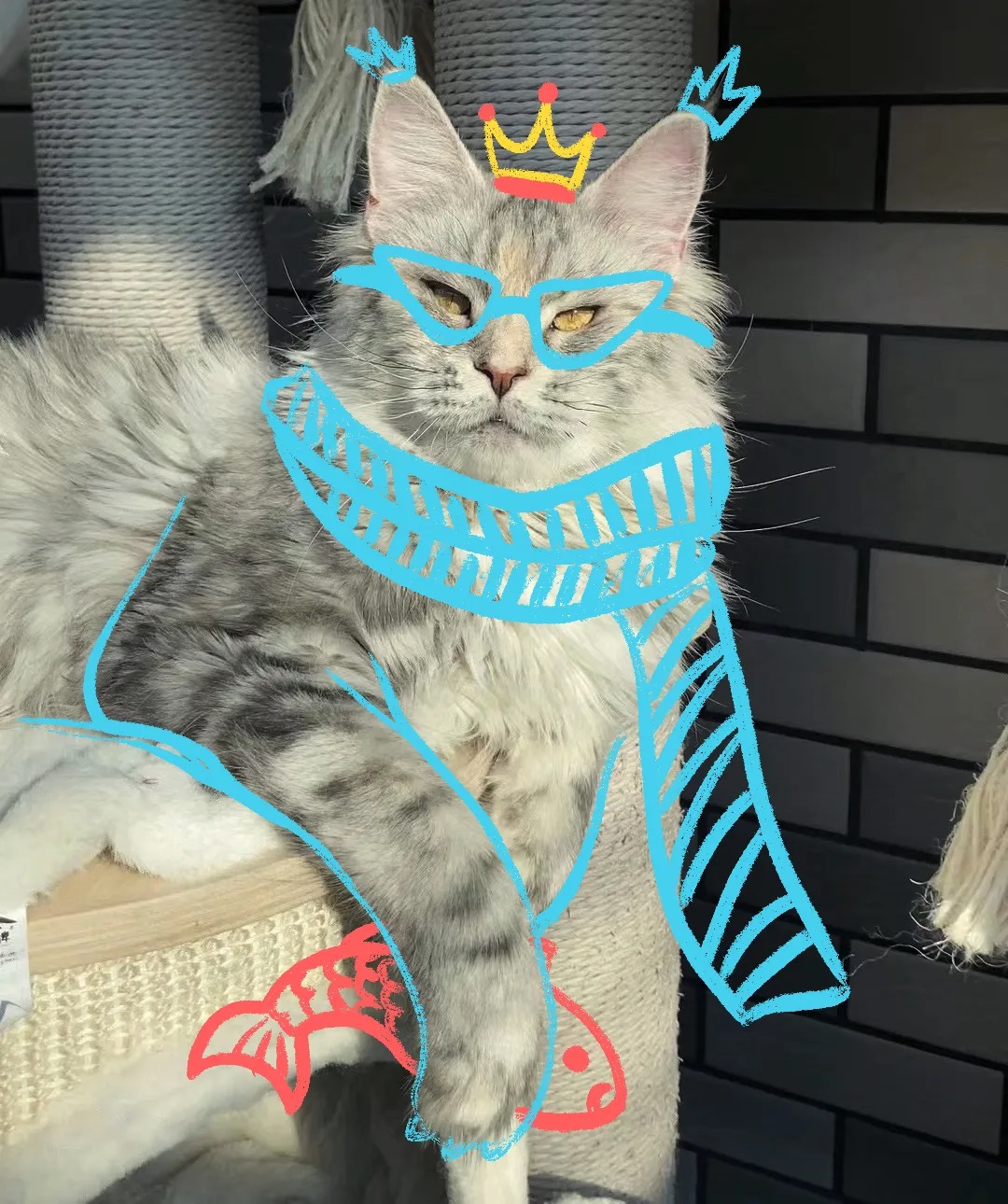
Pipi
If one wishes to keep their pet forever, some would choose to preserve the pet's genetic material while it is still alive.
This is the step before pet cloning. These genes can be preserved permanently and can be used for cloning at any time—if the owner decides to "continue" the life of the pet in this way.
Jing Yuan decided to buy this "regret medicine." Her separation anxiety came very early, when Pipi was 3 years old, she started to worry about the days without it. Pipi is a Maine Coon, and when Jing Yuan decided to leave Beijing to start a business in Hangzhou, she bought this cat, which looks like a little lion, from a Russian friend online.
"It accompanied me in starting a business, and I accompanied it in giving birth."
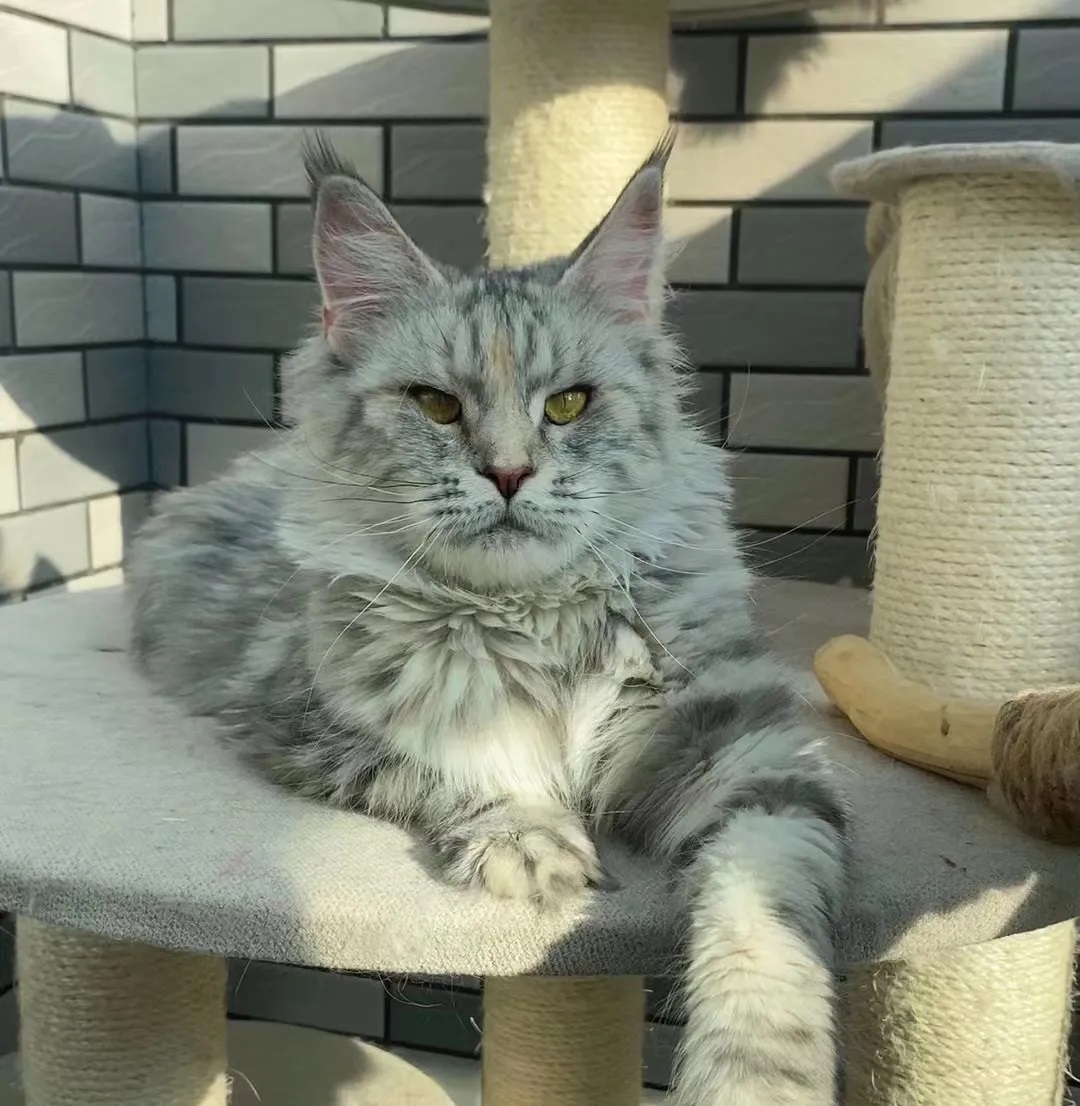
Jing Yuan found the phone number of Sinogene online, set up an appointment time, and then went to Sinogene to collect a skin sample. Pipi nestled in Jing Yuan's arms, quiet and soft.
The doctor found a spot on the inside of Pipi's thigh, used surgical tweezers-like scalpel, and quickly scraped off a piece of skin tissue. Jing Yuan hurriedly touched Pipi's belly to comfort it, the kitten didn't even know what happened, "It didn't even cry." Its skin tissue floated in a test tube containing pale red culture fluid, randomly sent to the laboratory for cell culture.
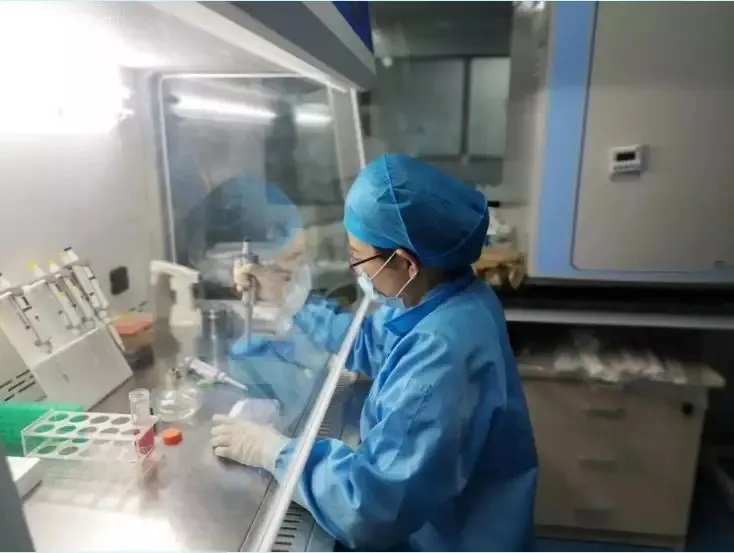
In the corner of the operating room stood containers like LNG tanks, which held −196℃ pressurized liquid nitrogen, preserving thousands of animal cells waiting to "return." When needed, these cells will be revived again, becoming life.
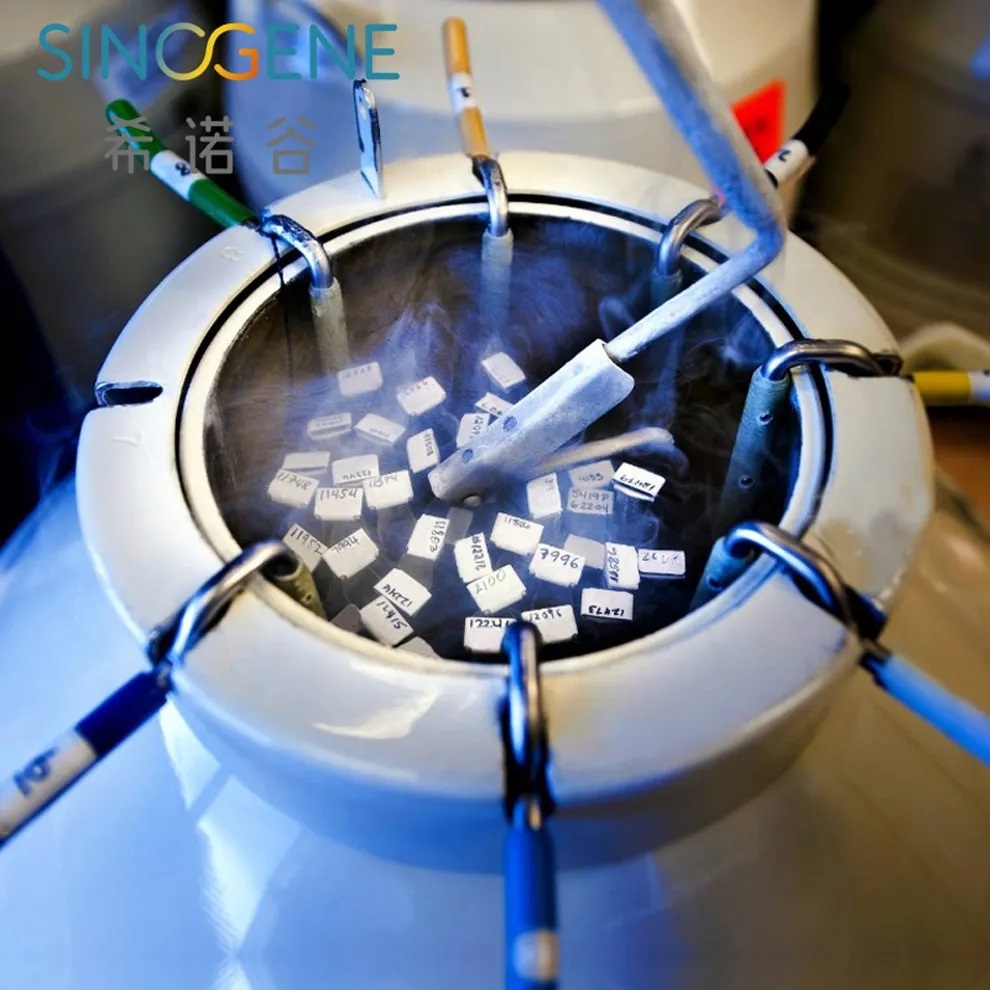
Jing Yuan chose a package costing 19,000 for ten years of preservation (there are also one, three, and five-year packages), giving her a long time to consider whether to proceed with cloning.
One month later, the genetic preservation certificate from Sinogene arrived, listing the total number of frozen cells available for cloning Pipi.
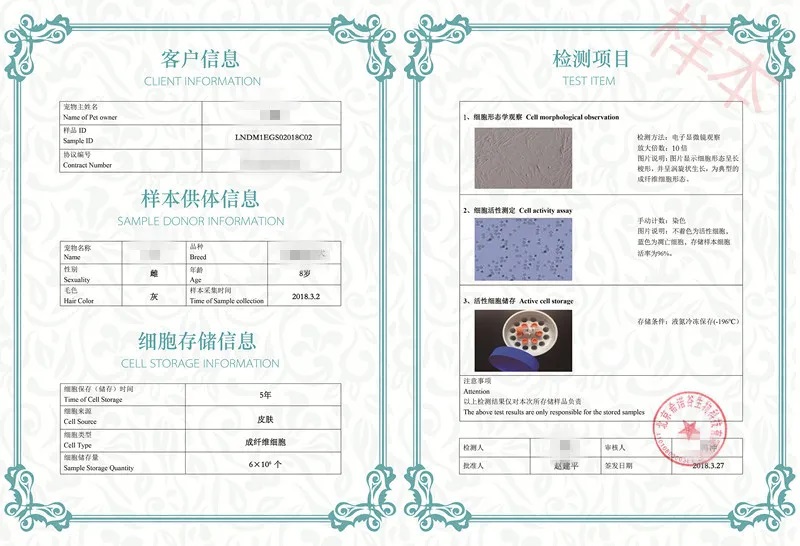
Certificate template
Jing Yuan didn't open the package, "The regret pill has been bought, and the heart has let go."
